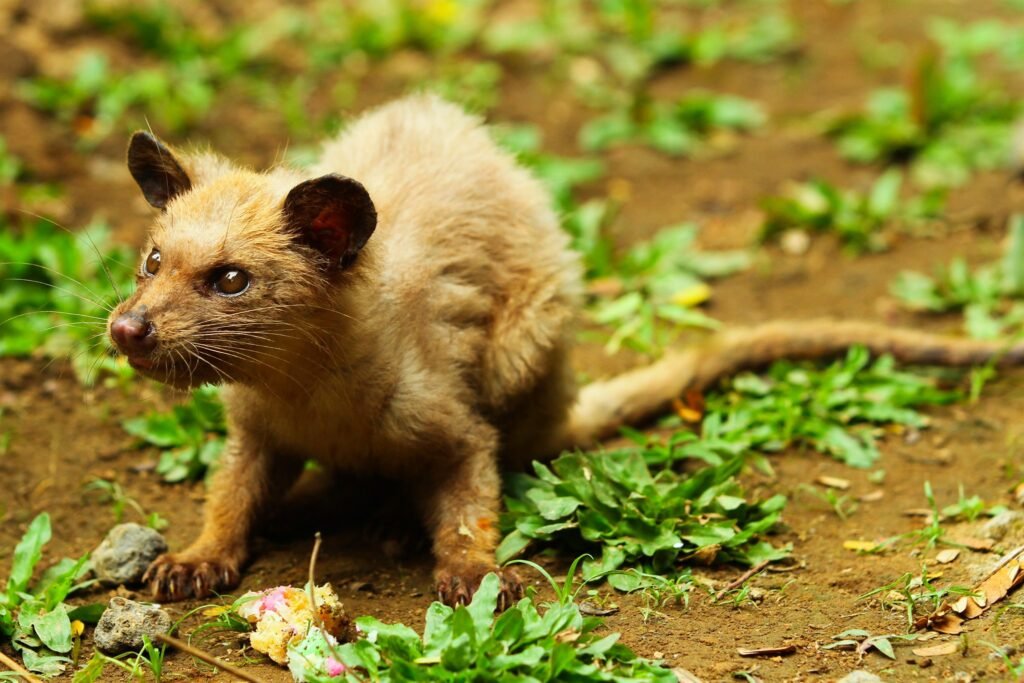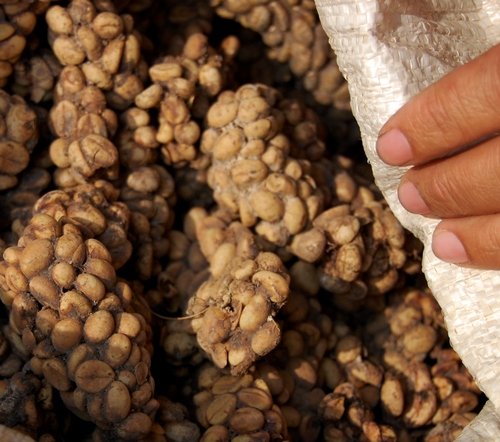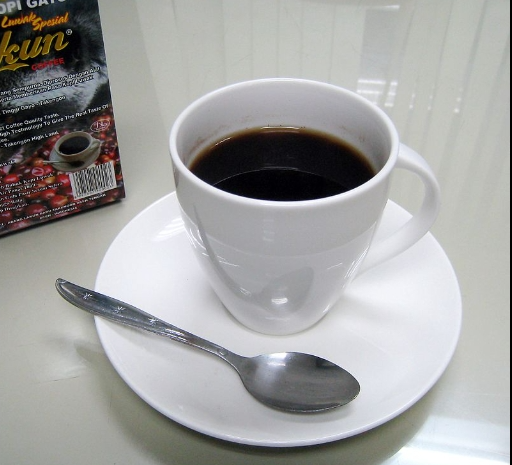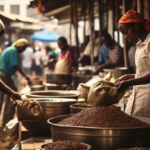Are you curious about the world’s most unique and luxurious coffee? Many people are searching for an extraordinary coffee experience, different from their daily cup. Kopi Luwak coffee offers just that. It is known as one of the most exclusive coffees globally due to its distinct production process and exceptional flavor.
Kopi Luwak comes from Indonesia, where it is made using beans that have been eaten and then excreted by civet cats. This unusual method gives the coffee a unique taste profile, making it highly sought after by connoisseurs. In this article, we will explore everything about Kopi Luwak – from its rich history and complex taste to ethical considerations and how you can find genuine products. Get ready to discover a new side of coffee culture.
Key Takeaways
- Kopi Luwak coffee comes from Indonesia and is made using beans that civets have eaten and excreted. This unique process gives it a distinct taste.
- There are concerns about the ethical treatment of civets in kopi luwak production. Choosing ethically sourced beans supports animal welfare.
- The high price of kopi luwak is due to its rarity and labor-intensive production process, with prices reaching up to $600 per pound.
- Fake kopi luwak is common, so looking for certifications and buying from reputable sources ensures authenticity.
- Alternatives to kopi luwak include artificially flavored beans and innovative fermentation techniques that mimic its flavor without harming animals.
Overview of kopi luwak coffee
Kopi luwak coffee holds the title as the world’s most exclusive and expensive brew. This specialty comes from Indonesia, including Sumatra, Java, Bali, and Sulawesi. It’s unique because Asian palm civets digest the coffee cherries.
The beans go through a natural fermentation process in the civet’s digestive system before being excreted.
The flavor of kopi luwak is rich, smooth, and complex with hints of chocolate and caramel. Its distinct taste and rarity make it a sought-after luxury coffee around the globe. Despite its high price tag, enthusiasts seek out this exotic delicacy for its unparalleled taste experience.

History of kopi luwak
The Dutch governor of India made history in the late 1600s by sending the first seedling of Arabica coffee to Java. This event marked a significant moment for coffee culture, especially on the Indonesian islands of Java and Sumatra.
These places became famous for their high-quality beans. However, Indonesia’s relationship with coffee took a turn when Dutch colonization kicked in during the mid-nineteenth century.
The colonizers claimed the country’s coffee industry, leaving a mark on how coffee was produced and enjoyed.
This period also saw the birth of kopi luwak, deeply tied to Indonesia’s colonial past and its struggle for control over its coffee production. Local farmers discovered that certain animals, like civets (Paradoxurus hermaphroditus), would eat the coffee cherries but could not digest the beans inside.
Collecting these partially digested beans from civet poop became an innovative way to produce an exotic-flavored coffee without violating colonial laws restricting them from harvesting their own crops.

Production process
Moving from its intriguing past, the production of kopi luwak coffee takes a unique path unlike any other coffee. Civets eat ripe coffee cherries, and their bodies process the beans.
People then collect these excreted beans from civet droppings in primary regions like the Philippines and Vietnam. This step is crucial for what comes next.
Workers wash and sanitize the beans thoroughly, addressing health concerns. After washing, they leave the beans to dry under the sun. The drying process helps enhance exotic flavors as it prepares them for fermentation—a key phase where unique flavor profiles develop due to enzymes in the civet’s gut.
Finally, roasting transforms them into aromatic kopi luwak ready for brewing. Each stage ensures that drinkers enjoy not just a cup of coffee but an extraordinary experience marked by luxury and distinct taste.
Taste and Quality of Kopi Luwak
Kopi luwak offers a unique flavor that stands out in the coffee world. Its smoothness and rich taste come from a rare production process.
Unique flavor profile
Kopi Luwak coffee stands out for its earthy and sweet undertones. People often say it tastes nutty, rich, and full of delicious hints of caramel and chocolate. This coffee has a smooth, velvety texture that many love.
Its low acidity makes it unique among other luxury coffees.
This coffee is compared to wet Arabica but offers a greater body. The aroma adds to the experience with subtle touches that enhance its quality. Enjoying a cup of Kopi Luwak means savoring these unique flavors and textures, setting it apart in the world of coffee.
Factors that affect taste
The civet’s diet plays a crucial role in shaping the flavor of kopi luwak coffee. The beans selected by the civet for consumption often come from high-quality Arabica plants, which already have a reputation for their excellent taste.
As these beans pass through the civet’s digestive system, natural enzymes alter their chemical structure. This process reduces bitterness and enhances smoothness, creating a unique flavor profile that sets kopi luwak apart from other coffees.
Research shows that the post-digestive effect of the civets contributes to a coffee with greater body and less acidity compared to regular wet Arabica coffee. The environment in which the civets live also influences this distinctive taste.
Civets thriving in nutrient-rich areas tend to produce coffee beans with more complex flavors due to their varied diets. Thus, both the specific diet of the Luwak and its digestion are key factors impacting the luxurious taste experience offered by kopi luwak coffee.
Imitation and Authenticity of Kopi Luwak
Be careful, a lot of kopi luwak coffee out there isn’t real. Learn how to spot genuine kopi luwak to enjoy its unique taste.
Addressing concerns about fake kopi luwak
Fake kopi luwak coffee is a big problem in the market. Up to 80% of what’s sold globally could be fake or low-quality. Some companies even use chemicals to make fake kopi luwak. This makes it hard for buyers to know if they’re getting the real deal.
To fight this issue, consumers should look for certifications and authenticity markers when buying kopi luwak. These signs can help you avoid counterfeit products and ensure you enjoy genuine kopi luwak with its unique taste and quality.
Always check labels carefully and buy from reputable sources known for ethical practices.
How to ensure authenticity when purchasing
Kopi Luwak coffee stands out due to its unique production process and distinct taste. It’s crucial to know you’re getting the real deal. Here’s how:
- Look for uniformity in bean size: Authentic Kopi Luwak beans are more uniform in size because of the natural selection process by the civets. This is a key indicator of genuine products.
- Check for certification: Genuine Kopi Luwak suppliers often have certifications that attest to their ethical sourcing and authenticity. Make sure the product has proper documentation.
- Research the brand thoroughly: Read up on the brand selling Kopi Luwak. Brands focused on sustainability and animal welfare are more likely to offer authentic coffee.
- Understand the price: If the price seems too good to be true, it probably is. Authentic Kopi Luwak coffee commands a high price due to its rarity and production costs.
- Examine packaging information: Legitimate packages should provide details about the coffee’s origin, including how and where it was collected. Lack of this information can be a red flag.
- Use scientific verification methods if possible: Researchers from Indonesia and Japan have developed a method to verify authentic Kopi Luwak. Ask if your supplier utilizes these technologies.
- Purchase from reputable specialty coffee shops or online retailers: Specialty shops and known online retailers are less likely to sell fake products, as they prioritize reputation over quick sales.
Animal Welfare
Concerns about how animals are treated in kopi luwak production have grown. Look for ethically sourced beans to support better practices.
Controversy surrounding the production of kopi luwak
Civets, the animals used to make kopi luwak, often suffer in small cages. This is not humane. They show strange behavior and can get very sick. Their lives are shorter because of these conditions.
People worry about this treatment and how it affects the environment.
The desire for kopi luwak has led to harmful practices. Many speak out about the ethics of using civets this way. Buyers play a big role in changing things by choosing ethically sourced coffee.
Next, let’s look into why kopi luwak is so pricey and hard to find.
Ethical sourcing and production methods
Moving from the controversy surrounding kopi luwak production, it’s crucial to focus on ethical sourcing and production methods. These methods ensure that civet cats are treated humanely.
Companies like Sea Island Coffee lead by example, adopting fair trade practices. They show a strong commitment to the environment and animal welfare.
Ethical producers avoid force-feeding and caging of civets, which improves coffee quality. Sustainable practices involve wild civets choosing their coffee cherries freely. This approach supports not only animal well-being but also ensures high-quality coffee for consumers, aligning with personal values towards conservation and ethics in the luxury market.
Price and Availability
Kopi luwak coffee comes with a high price tag due to its unique production process. You can find this luxury coffee in select specialty stores and online retailers.
Reasons behind the high price of kopi luwak
Kopi luwak is one of the priciest coffees globally because it’s produced in small quantities. This coffee comes from Indonesia and involves a unique process with Asian palm civets.
These factors make kopi luwak rare and very exclusive. The traditional methods to produce this coffee are both time-consuming and labor-intensive, adding to its luxury status.
Limited supply also plays a big role in its high cost. Since producers can only make a tiny amount each year, demand outpaces supply easily. Prices can soar up to $600 per pound due to this scarcity.
People pay top dollar for the novelty and exclusivity that come with each cup of kopi luwak, making it a sought-after experience worldwide.
Where to find and purchase authentic kopi luwak
Finding authentic Kopi Luwak coffee might seem daunting, but it’s definitely possible with some guidance. You want to ensure you get the real deal, not just any coffee labeled as such. Here’s how you can find and buy authentic Kopi Luwak:
- Specialty Coffee Shops: Start your search at local specialty coffee shops. These places often source rare and exotic coffees, including Kopi Luwak. They usually have direct relationships with producers, which increases the chances of authenticity.
- Luxury Retailers: Check out luxury retailers that specialize in gourmet foods and beverages. They pride themselves on offering only genuine products, so they’re a reliable source for finding authentic Kopi Luwak.
- Online Platforms: The internet is a vast marketplace for rare items, including Kopi Luwak coffee. Look for reputable websites known for gourmet coffee sales. Read reviews and check their authentication processes before making a purchase.
- Direct From Producers: If possible, buy directly from the producers or farms that specialize in producing Kopi Luwak. This method ensures you’re getting it straight from the source and supports ethical production practices.
- Coffee Enthusiast Forums: Join forums or groups dedicated to coffee enthusiasts. Members often share tips on where to find genuine Kopi Luwak and may even sell it themselves.
- Verify Certifications: Look for certifications or seals that indicate the coffee has been ethically sourced and is authentic. Certifications can provide peace of mind regarding both quality and ethical considerations.
- Ask for Documentation: Don’t hesitate to ask sellers for proof of authenticity and ethical sourcing documentation when available. Reputable dealers will be happy to provide this information.
- Understand Price Points: Be wary of prices that seem too good to be true; authentic Kopi Luwak is rare and does come with a higher price tag due to its unique production process.
Variations and Alternatives
Explore other unique civet coffees that offer distinct flavors. Discover non-civet coffee alternatives that also provide a luxurious experience.
Other types of civet coffee
Civet coffee doesn’t stop with Kopi Luwak. Each type offers a distinctive taste that stands out in the coffee world. Wild Civet Coffee, for example, comes from beans collected after being eaten and naturally processed by Asian palm civets.
This rare method results in coffee that’s smooth and rich, with low acidity.
Beyond Wild Civet Coffee, there are more varieties to discover. These coffees also boast complex flavors due to the unique digestion process of civets. The rarity of these types adds to their allure, making them highly sought after in the luxury and specialty market.
Now, let’s look at non-civet alternatives that still offer exceptional experiences for coffee lovers.
Non-civet alternatives
Kopi luwak coffee offers a unique taste, but concerns about animal welfare have led to the rise of non-civet alternatives. These alternatives provide similar flavor profiles without ethical issues.
- Artificially flavored beans: Scientists have developed a way to mimic the taste of kopi luwak by treating coffee beans with a special process. This method replicates the chemical changes that occur in civet-processed beans.
- Fermentation techniques: Some coffee producers use innovative fermentation methods to alter the flavor profile of their beans, aiming to match the smoothness and complexity of kopi luwak.
- Sustainable brands: A few select coffee brands focus on ethical practices and offer blends designed to evoke the luxury experience of kopi luwak. They ensure high quality without exploiting animals.
- Specialty roasts: Expert roasters play with temperature and timing to create roasts that highlight certain flavors in the beans, bringing out a richness akin to that found in civet coffee.
- Genetic selection: Farmers are increasingly selecting and cultivating coffee bean varieties known for their naturally low acidity and smooth flavor, similar to what is prized in kopi luwak.
The Benefits and Differences of Kopi Luwak Coffee
Kopi Luwak coffee stands out with its smooth taste and low acidity. It offers a distinct experience compared to regular coffee, thanks to unique processing methods.
Low acidity and caffeine content
Kopi Luwak coffee stands out for its low acidity. This feature makes it smoother and less bitter than other coffees. Lactic acid bacteria in the digestion process of Luwak cats reduce the acidity of the beans.
This gives Kopi Luwak its gentle taste.
This coffee also has less caffeine content compared to regular coffee. The unique fermentation process inside Luwak cats affects the caffeine levels. Drinkers often enjoy Kopi Luwak for its mild effects, making it a special choice among different types of beans.
Let’s explore how this coffee compares to commercial brands next.
Comparing to commercial coffee
Moving from its unique characteristics, Kopi Luwak stands out against the everyday coffee blends found at places like Starbucks. It boasts significantly lower levels of caffeine and acidity.
This makes it a gentler option for your stomach while providing a distinct taste experience unlike any regular cup of joe.
Commercial coffees tend to pack more bitterness and fat, but Kopi Luwak takes a different route. Its production journey, starting from the civets’ selection of beans to the natural fermentation process inside their digestive tracts, results in a smoother and less bitter flavor.
This luxury coffee offers an exclusive alternative that’s not only about prestige but also an unparalleled taste profile that commercial varieties can’t match.
Kopi Luwak in Popular Culture
Movies and TV shows often mention kopi luwak, sparking curiosity. This fame makes more people want to try it themselves.
References to kopi luwak in media and entertainment
Kopi luwak often shows up in movies, TV shows, and books. Its unique production process and luxurious image make it stand out. People see it as a symbol of refined taste and exclusivity because of its flavor and rarity.
This coffee has been talked about on famous talk shows and even used in plots to show wealth or sophistication.
The history of kopi luwak adds intrigue to its storylines in media. Discussions about how it’s made and the ethics behind it also pop up. These references boost its popularity further, making more people curious to try this exclusive brew.
Now, let’s dive into experiences with kopi luwak from customers.
Impact on its popularity and demand
Movies, TV shows, and celebrities often talk about kopi luwak coffee. This makes more people want to try it. They see it as a sign of luxury and good taste. Its high price adds to its allure, making it the world’s most expensive coffee.
People are drawn to rare and exclusive things.
Many seek out kopi luwak for special occasions like gifting or impressing guests. The demand grows because of its status in popular culture and the luxury market. Next, we’ll explore what customers say about their experiences with this unique coffee.
Testimonials
Hear directly from people who’ve tried kopi luwak. Customers and experts share their honest opinions and experiences.
Experiences with kopi luwak from customers
Kopi Luwak has captured the hearts of coffee enthusiasts worldwide. Its luxurious appeal and unique flavor make it a sought-after experience for many.
- A Customer’s First Sip: One customer shared how their first sip of Kopi Luwak felt like an awakening. They noted the smoothness and rich taste that set it apart from regular coffee.
- Health Benefits Acknowledged: Another person highlighted the health benefits they experienced. With lower acidity and caffeine content, they found Kopi Luwak gentler on their stomach.
- Luxury in Every Cup: Many describe drinking Kopi Luwak as indulging in luxury. The rarity and exclusivity factor play a big part in its appeal, making each cup feel special.
- Discovery of Authenticity: A seasoned coffee drinker talked about the challenge of finding authentic Kopi Luwak. Once they did, the difference in quality was undeniable, emphasizing the importance of authenticity issues.
- Ethics Matter: Some customers express satisfaction in finding ethically sourced Kopi Luwak. Knowing that no animal exploitation was involved makes the coffee even more enjoyable.
- The Price Justifies the Experience: Despite its high price range, fans of Kopi Luwak believe the unique experience justifies the cost. They regard it as more than just coffee—it’s an exclusive experience.
- Comparisons Drawn with Regular Coffee: People often compare their Kopi Luwak experiences to regular coffee, noting significant differences. The smooth taste and health aspects stand out as key advantages.
- Encounters with Wildlife Conservation: Customers also appreciate efforts toward sustainable production. Learning about conservation efforts linked to ethical Kopi Luwak makes them feel involved in something positive.
Reviews of kopi luwak from experts and coffee enthusiasts
Kopi Luwak coffee gets mixed reviews. Some people see it as a luxury while others question its value and ethics.
- Experts often praise its unique flavor profile. They mention tastes you can’t find in other coffees.
- Coffee enthusiasts appreciate the smoothness. Many say it’s less acidic than regular brews, making it easier on the stomach.
- Some critics argue about the price. They feel it’s too high for the experience it offers.
- Ethical concerns play a big role in reviews. Animal welfare activists often express worries about how civets are treated.
- Authenticity is another hot topic. Finding real Kopi Luwak is hard, and there are many fakes out there.
- Those who’ve tried authentic Kopi Luwak usually note its distinct aroma. It has a scent that stands out from other coffees.
- Sustainability efforts gain attention too. People are interested in how their coffee impacts the environment and animal populations.
- The history behind Kopi Luwak fascinates many. Its origins in the Dutch colonial era add to its exotic appeal.
Sustainability and Ethics
You can help make kopi luwak coffee better for animals and the planet. Choose coffee that supports ethical farming practices.
Efforts to promote sustainable and ethical production of kopi luwak
Farmers and coffee companies are working hard to make kopi luwak coffee in a way that’s good for the environment and safe for animals. They focus on getting beans from wild civets instead of keeping them in cages.
This method helps protect the civet’s natural way of life and keeps their population healthy. Choices like these support conservation efforts, showing it’s possible to enjoy luxury coffee without harming nature.
Companies like Sea Island Coffee take this mission seriously. They commit to fair trade practices, which means they pay farmers a fair price for their beans. This encourages farmers to stick with ethical methods.
By choosing these kinds of sustainable and animal-friendly coffees, consumers play a big role. Their decisions can push more producers towards responsible practices that are better for the planet and its creatures.
The role of consumers in supporting ethical practices
You hold power in your choices. By picking civet coffee from trusted sources, you back sustainable and ethical farming. This helps ensure animals are treated right and the environment is preserved.
Look for labels and certifications that prove the coffee was made without harming nature or weasels.
Your support makes a big difference in promoting ethical practices in kopi luwak production. Asking questions about where and how your coffee was produced encourages transparency. It pushes producers to adopt better methods.
Every cup of sustainably sourced kopi luwak you enjoy contributes to a healthier planet and happier animals.
Conclusion
Kopi Luwak coffee brings luxury to your cup with its unique taste and story. Think about trying this rare blend for a new morning experience. Remember, the choice of coffee impacts real animals and workers.
Explore ethical sources if you decide to indulge in Kopi Luwak. Let this luxurious brew inspire your next coffee adventure, ensuring it’s both enjoyable and responsible.
FAQs
1. What is Kopi Luwak coffee?
Kopi Luwak coffee, also known as weasel coffee, comes from beans that have been eaten and then passed by a certain species of wild cat. It’s known for its unique flavor and luxury status.
2. Why is Kopi Luwak so expensive?
The price of Kopi Luwak is high because it has limited availability, involves a special collection process, and factors like quality control and the species involved affect its cost.
3. Are there any drawbacks to drinking Kopi Luwak?
Yes, some drawbacks include concerns over sanitary conditions during collection, ethical issues regarding the treatment of animals involved in its production, and variability in quality.
4. How can I tell if my Kopi Luwak coffee is real?
You can identify genuine Kopi Luwak by looking at identification methods such as evaluating factors like taste profile, bean appearance after collection, and ensuring you buy from reputable sources with strict quality control measures.
5. What does the future hold for Kopi Luwak coffee?
The future of production could see changes in how it’s made due to ethical concerns and demand for more sanitary practices. Recommendations for sustainable involvement may shape how this luxury item continues to be produced and enjoyed.
6. What is The difference between Balinese Luwak coffee and Kopi Luwak Coffee?
Balinese Luwak Coffee and Kopi Luwak refer to the same type of coffee, with the primary difference being the geographic origin implied by the name “Balinese.” “Kopi Luwak” is the Indonesian term for Civet Coffee, encompassing all such coffee produced in Indonesia, not limited to any specific region. When the term “Balinese Luwak Coffee” is used, it specifically refers to Kopi Luwak produced in Bali, highlighting the island’s unique environment and coffee cultivation practices.






